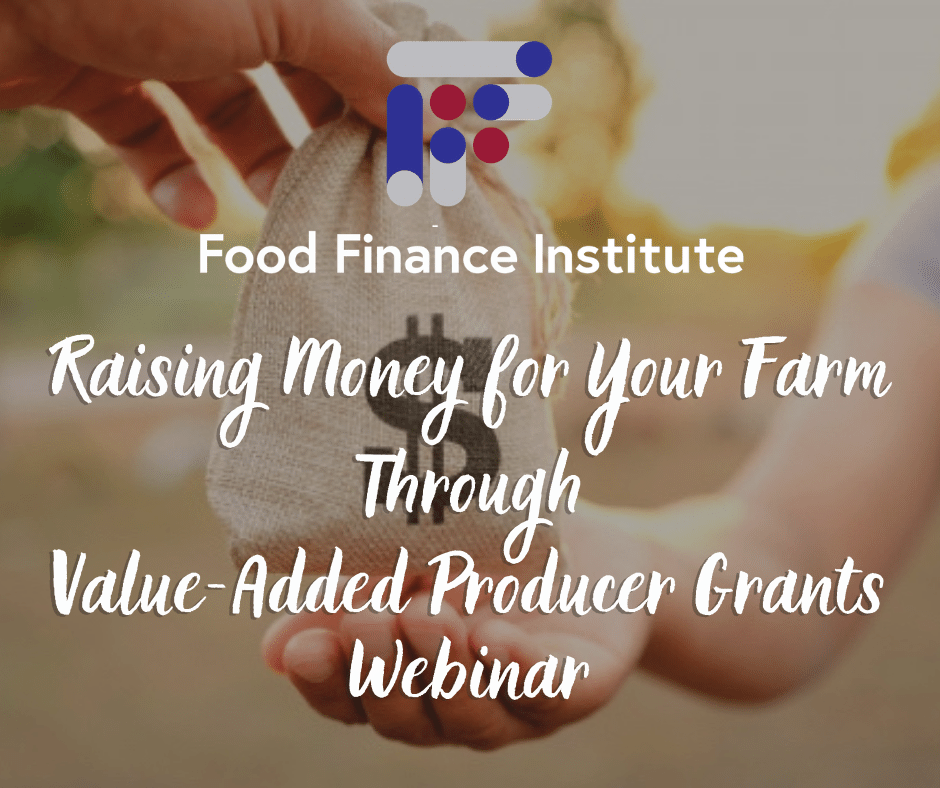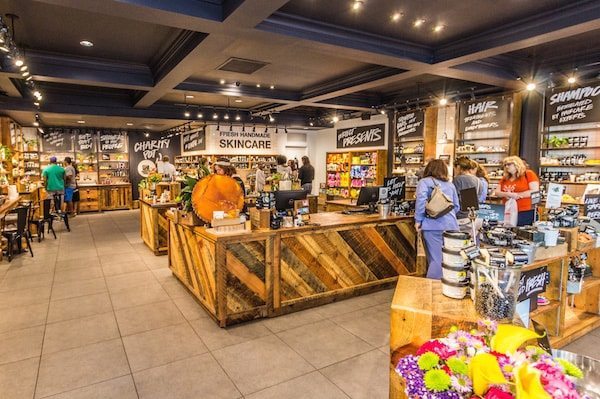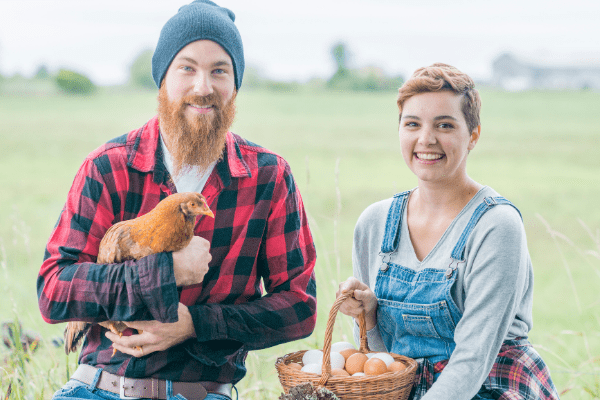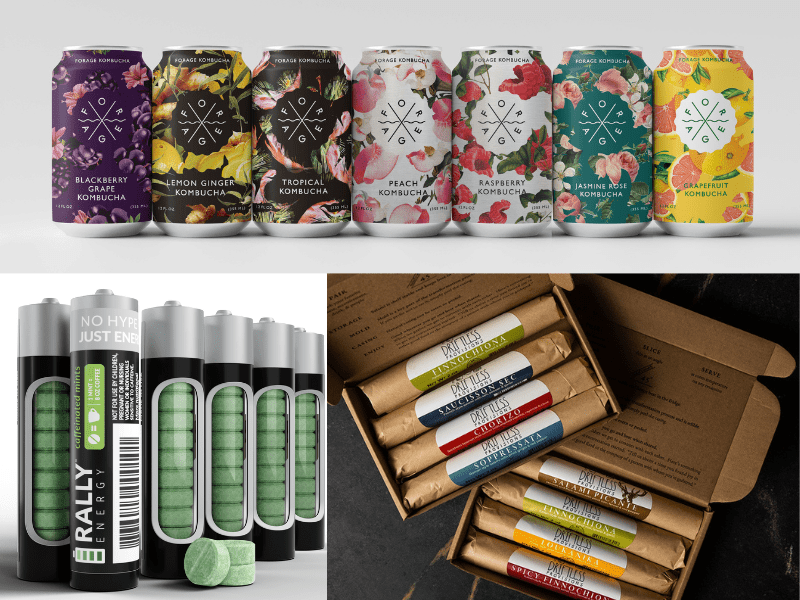Farming is hard work, but financing a new organic or regenerative endeavor is its own beast. Land can be expensive and tough to access, long-term capital is hard to come by and operating lines of credit for farms are scarce. Plus, private-equity investors don’t exactly line up behind aspiring farmers. Overall, investors and creditors tend to consider beginning farmers, as well as BIPOC and other socially disadvantaged farmers, just too risky.
Sadly, these financial barriers end up dissuading many people from giving farming a shot—which stinks, because the world desperately needs more regenerative and organic farmers. With the climate crisis intensifying and the food system begging for reinvention, we need stewards of the land to replenish nutrient-depleted soil, revitalize ecosystems, sequester carbon and produce high-quality nutritious foods.
Fortunately, the sands are starting to shift. There is a growing understanding that in order to scale regenerative and organic agriculture, we must invest in farmers. They need access to capital that actually meets their needs, which may look a lot different than traditional financing.
FFI has been working to advance this notion for years, but Edible-Alpha® Live! guest David Miller was way ahead of the curve. Merging his expertise in banking and real estate financial management with his passion for expanding organic agriculture, David co-founded Iroquois Valley Farmland REIT back in 2007. Through long-term farmland leases, mortgages, credit lines and other financing tools, the company helps organic farmers secure land while offering mission-based investors impactful places to put their money.
Now FFI and Iroquois Valley are partnering on an exciting new project to support new and diverse farmers and make their ventures more attractive to investors and lenders. Through a $387,000, three-year USDA Beginning Farmer Rancher Development Program grant, FFI and collaborators have launched a financial technical assistance program to coach beginning farmers on business models, raising money and hitting financial benchmarks.
Over time, the program will track the performance of 45 farmers from Iroquois Valley’s loan portfolio and Black Oak Center’s farm incubator program, which represents a historically Black farm community. The hope is that by helping these farmers succeed, they’ll become solid investment cases that can open the door for more capital in the future.
Sweeping change to long-held practices does not happen overnight, whether it’s farming techniques or investment strategies. But the more it can be demonstrated that this new paradigm of agriculture and financing actually works, the easier it will become for regenerative and organic farmers, backed by impact investors, to change the world.
Edible-Alpha® Live! featured Tera’s interview with David Miller, co-founder and CEO of Iroquois Valley Farmland REIT, which was impact investing long before it was cool. The 14-year-old farmer-focused finance company helps organic farmers secure land long-term while giving mission-minded investors a way to do well by doing good. With a mission to scale up organic agriculture and restore America’s nutrient-depleted soils, Iroquois Valley is just getting started.

- NEW! Watch the interview on our YouTube Channel
- Listen to the latest podcast episode
- Subscribe to our podcast
- Subscribe to our YouTube channel

Next Workshop: Marketing & Branding Planning
Sign up today for our Marketing & Branding Planning Workshop on February 4, part of the FFI Scaler Series. Together, we’ll dig deep to define, align and maximize your brand value for success in the marketplace.
This workshop is FREE thanks to funding from the Small Business Administration.

Check out the recording of FFI’s most recent webinar! Tera Johnson interviews renowned VAPG writer and consultant, Jim Gage of JDG Consulting. The webinar gives farm entrepreneurs a better understanding of how a VAPG could help their businesses and if they should be writing one right now.
The VAPG RFA period is currently open with applications due March 22nd. If a VAPG is right for you, FFI and JDG Consulting have resources to help you do so.
And now, our roundup of the best food and beverage finance news, events and resources from around the web…

Business Model Insights
- Voices From the Front Lines of America’s Food Supply (The New York Times)
Eleven workers, from the factories and farms to the highways and supermarkets, tell how they got themselves—and us—through a catastrophic year. - Cost-conscious consumers’ embrace of bulk packaging, private label reshapes competitive landscape (FoodNavigator-USA)
- Why brands are weighing in on the Capitol insurrection (Vox)

Raising Capital
- How to Prevent Your Founder’s Shares from Vaporizing (Startup Professionals Musings)
Every entrepreneur has heard of startups selling for millions or going public and the founder being left out to dry. Prevent this tragedy by incorporating early, avoiding negative tax situations and managing founder’s shares like gold. - Refinance your Commercial Real Estate Loan for Lower Monthly Payments in 2021 (TMC Financing)
- 8 Keys to a Major Source of Funding for New Ventures (Startup Professionals Musings)
CPG/National Brands
- CPGs wake up to breakfast’s new future after coronavirus shakeup (Food Dive)
With more people at home, a less hectic pace has boosted demand for sausage, waffles and cereal—a shift food manufacturers are confident will stick around after the pandemic. - Upcycled Certification Standard gets the go ahead (Food Business News)
- Getting to the root of chicory root’s popularity surge (Food Dive)

Market Trends
- Consumers won’t cut out meat in 2021 (Meat + Poultry)
Despite plant-based trends and lab-created meat substitutes, a survey finds 58% of adults have no plans to consume less meat but will seek out humanely raised meat and natural and organic meat products with clean ingredients. - Survey: Americans committed to maintaining cooking habits in post-pandemic world (FoodNavigator-USA)
- Global Food Prices at Six-Year High Are Set to Keep on Climbing (Bloomberg)

Farming and AgTech
- Degraded Soil Costs Corn Farmers Hundreds of Millions of Dollars a Year: Study (Modern Farmer)
Massive monocrop corn farms drain the soil of nutrients, curtailing production and forcing farmers to use more fertilizer. University of Colorado Boulder researchers gauged the economic costs of this system and found they are staggering. - A New Study on Regenerative Grazing Complicates Climate Optimism (Civil Eats)
- How carbon-smart farming is catalyzing the big bucks needed to transform the way America eats (Green Biz)

Deals/M&A
- ZICO founder re-acquires brand from Coca-Cola via PE firm: ‘The cycle has swung back’ (FoodNavigator-USA)
Yet another once-hot startup is bought back form a strategic acquirer after underperforming. What does this say about Big Food’s ability to foster and scale emerging brands? - TerraCycle completes capital raise of $25 million for global reuse platform Loop (Recycling Product News)
- Mondelez buys premium chocolate and snack maker Hu for undisclosed amount (Food Dive)

Virtual Events
- SupplySide Network 365 Education: Packaging that pleases people, the planet and profits: 1/21
- International Production & Processing Expo: 1/25–1/29
- KeHE Summer Show: 1/28–2/5
- Edible-Alpha Consultant Huddle: 2/1 from 1 to 2 p.m. CST (Read 1/4 huddle notes here)
- PLMA Live! Presents Private Label Week: 2/1–2/5
- FFI Winter 2021 Farm Business Boot Camp: 2/3–2/4
- FFI Scaler Series: Marketing & Branding Planning Workshop: 2/4
- World Ag Expo: 2/9–2/11
- AFFI-CON 2021: Accelerating Growth with Frozen Ingredients: 2/17–2/26
- UNFI Natural & Conventional Spring & Summer Show: 2/23–2/25
- FFI Scaler Series: Operations & Organization Planning Workshop: 2/24
- Natural Products Expo Virtual Spark Brand Success: 3/2–3/4


